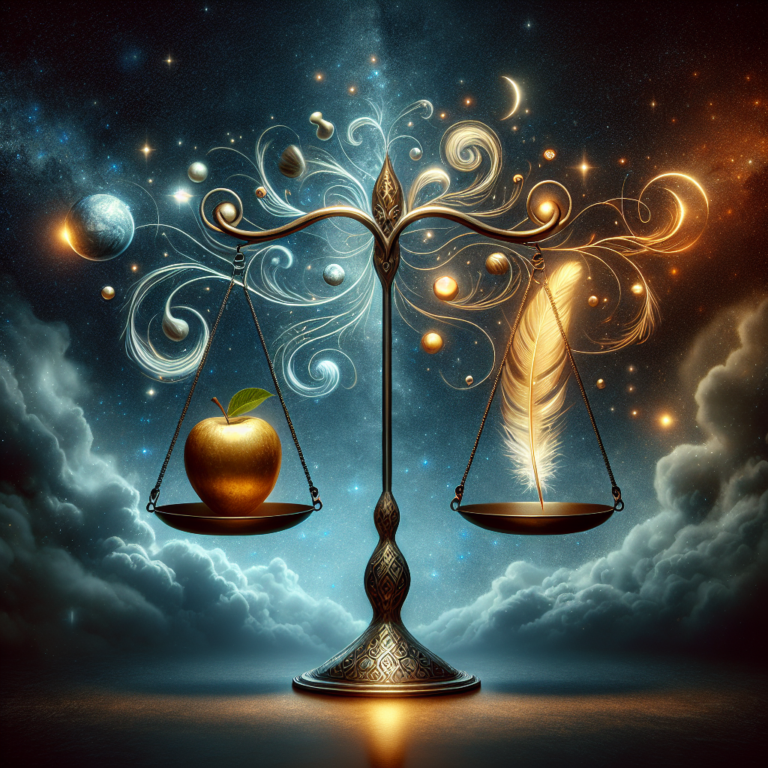In our journey through life, we often encounter situations that test our character, provoke our emotions, and challenge our beliefs. Among the most complex and transformative experiences we face are those involving karma and forgiveness. While these concepts may seem distinct, they are interwoven in profound ways, influencing not only our personal growth but also our relationships and overall well-being. Understanding how karma and forgiveness interact can lead us to profound healing.
Understanding Karma
Karma, a term rooted in ancient Indian philosophies such as Hinduism and Buddhism, refers to the idea that every action generates a force that will inevitably return to the individual. It implies a cycle of cause and effect, where positive actions cultivate positive outcomes, and negative actions yield painful consequences. However, modern interpretations of karma have broadened its meaning, incorporating moral dimensions and emphasizing the importance of our intentions.
In contemporary contexts, many now view karma not just as a cosmic ledger of deeds but as a framework for personal accountability. When we act with kindness and integrity, we set forth energies that enrich our lives and the lives of others. Conversely, when we act selfishly or harmfully, we can set in motion a series of events that lead to suffering—not only for those we have wronged but also for ourselves.
The Nature of Forgiveness
Forgiveness is a deeply personal and often challenging process. It typically involves letting go of resentment and anger toward someone who has caused us pain. Though forgiveness is frequently misunderstood as a sign of weakness or as condoning the offender’s actions, it is, in fact, a powerful act of self-liberation. By forgiving, we relinquish the emotional burden tied to the grievance, allowing ourselves to heal.
It is important to distinguish between forgiveness and reconciliation. Forgiveness is a voluntary and personal choice that can occur independently of whether or not the relationship is restored. It is an inner journey aimed at freeing oneself from negative emotions, while reconciliation involves restoring trust and connection, which may not always be possible.
The Interplay of Karma and Forgiveness
Now, let’s explore how karma and forgiveness interact. At first glance, the concepts may seem at odds: karma represents a system of consequences rooted in justice, while forgiveness embodies compassion and understanding. However, when examined closely, they can be deeply complementary.
Understanding Suffering: When someone wrongs us, our instinct may be to seek retribution or to cling to feelings of hurt. However, understanding that karma operates in the background can provide a sense of peace. We realize that the offender will eventually face the consequences of their actions, which can lessen our emotional burden. This perspective may open the door to forgiveness, allowing us to release negativity and embrace healing.
Personal Growth: Forgiveness can be a pivotal moment in our karmic journey. When we forgive, we shift from a mindset of victimhood to one of empowerment. We reclaim control over our emotional state, moving beyond the pain of past actions into a space of healing and self-improvement. This transformative process can create positive karma, establishing a foundation for a more fulfilling life.
Breaking Cycles: The interplay between karma and forgiveness can also be seen in the context of generational patterns. Often, families perpetuate cycles of unresolved grievances that lead to ongoing pain and conflict. By consciously choosing forgiveness, individuals can break these cycles, leading to healing not only for themselves but also for future generations. This act of breaking karma can result in revitalized relationships and renewed hope.
Empathy and Understanding: Both karma and forgiveness encourage us to cultivate empathy. Recognizing that everyone is acting on their own flawed understanding of life can help us to see offenders not as monsters but as fellow human beings grappling with their own suffering. This awareness can transform our perceptions and promote forgiveness as a pathway to healing.
- Letting Go of Judgment: The assumption that we must see justice served can imprison us in bitterness and anger. However, when we embrace the concept of karma, realizing that everyone will face their own consequences eventually, we can let go of the need for judgment. This act of relinquishing perceived justice is incredibly liberating and opens up the possibility for forgiveness.
The Journey of Healing
The intertwining of karma and forgiveness is not merely theoretical; it has practical implications for our healing journey. Engaging with these concepts prompts us to reflect on our actions and the impact they have on ourselves and others. It invites us to develop compassion for ourselves and for those who have wronged us.
Self-Reflection: Healing starts with self-awareness. Engage in reflective practices such as journaling, meditation, or therapy to unpack your feelings surrounding past grievances. Recognizing how these experiences shape your perception of karma and forgiveness is crucial.
Practice Compassion: As we grapple with forgiveness, it helps to cultivate compassion for ourselves and others. Understand that everyone is on their journey, and flaws are part of the human experience. By nurturing empathy, we create fertile ground for healing.
Set Intentions: Intend to let go of the past. Craft clear intentions that align with your desire to forgive and heal. These can serve as an anchor during challenging moments when you feel anger or resentment resurfacing.
Seek Professional Guidance: Sometimes, navigating the waters of forgiveness and understanding karma can be challenging. Seeking the support of counselors or spiritual guides may provide you with tools and perspectives that facilitate your journey.
- Embrace the Process: Remember, healing is not a linear path. There will be ups and downs, moments of regression, and breakthroughs. Embrace the journey with an open heart, acknowledging that both karma and forgiveness are processes that unfold over time.
Conclusion
The interplay of karma and forgiveness offers a powerful framework for healing. By understanding these concepts and their interconnectedness, we can approach our life experiences with greater compassion and wisdom. Embracing forgiveness not only liberates us from the shackles of anger and resentment but also facilitates the creation of positive karma, enriching our lives and the world around us.
Understanding that every action has consequences allows us to live more intentionally and compassionately, paving the way for a life of healing, personal growth, and profound interconnectedness.
FAQs
Q: Can forgiveness happen without the other person asking for it?
A: Yes! Forgiveness is a personal choice and can occur independently of the offender’s actions or requests. It primarily serves your own healing.
Q: How can I start the process of forgiveness?
A: Begin with self-reflection, acknowledging your feelings. Journaling can help you articulate and process emotions. Gradually work on letting go of resentment.
Q: Does forgiving someone mean I have to reconcile with them?
A: No. Forgiveness is about releasing negative emotions but does not necessarily mean you need to restore the relationship.
Q: Can I still believe in karma if I forgive someone?
A: Absolutely! Forgiveness and belief in karma can coexist. Forgiving does not negate the understanding that actions have consequences.
Q: How can practicing forgiveness improve my mental health?
A: Forgiveness can lower feelings of anger and resentment, reduce stress, and promote emotional well-being, leading to an overall better mental state.
It seems like your message might be incomplete. Could you please provide more details or specify what you’d like assistance with? Whether it’s a writing prompt, a topic for discussion, or something else, I’m here to help!, #Interplay #Karma #Forgiveness #Healing #Understanding, #Interplay #Karma #Forgiveness #Healing #Understanding, 1735523584, the-interplay-of-karma-and-forgiveness-healing-through-understanding





